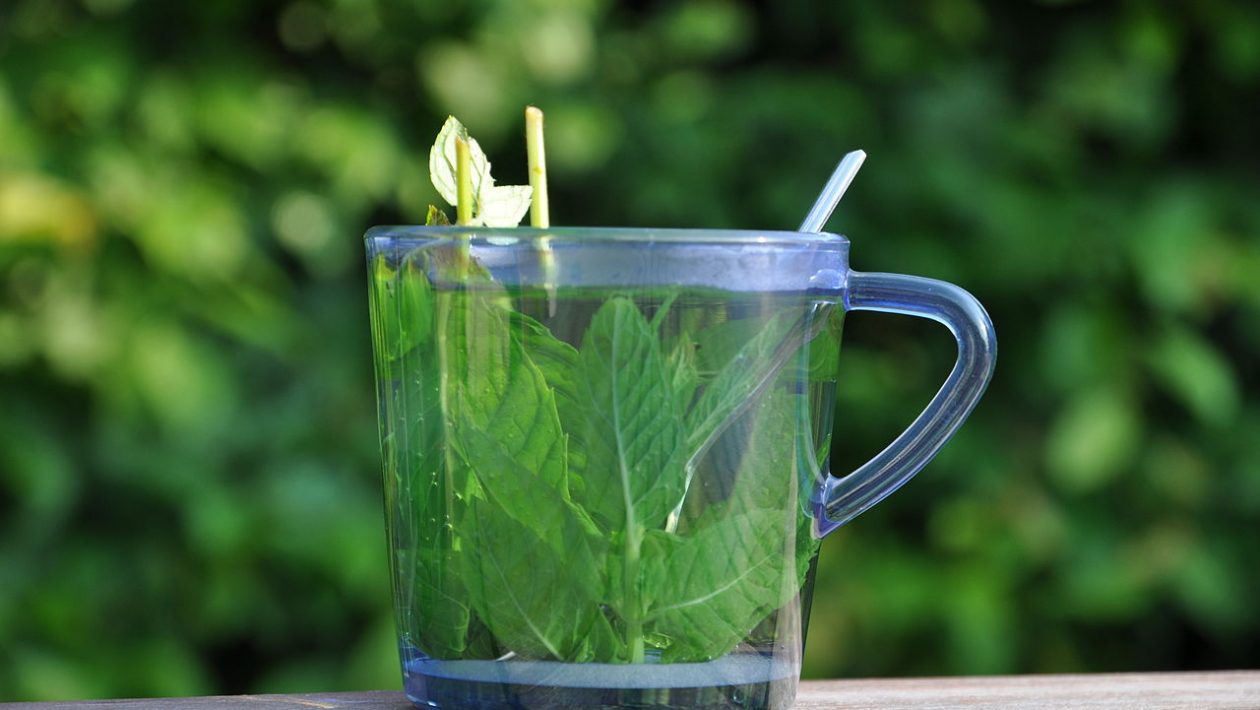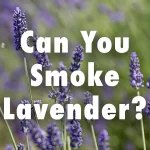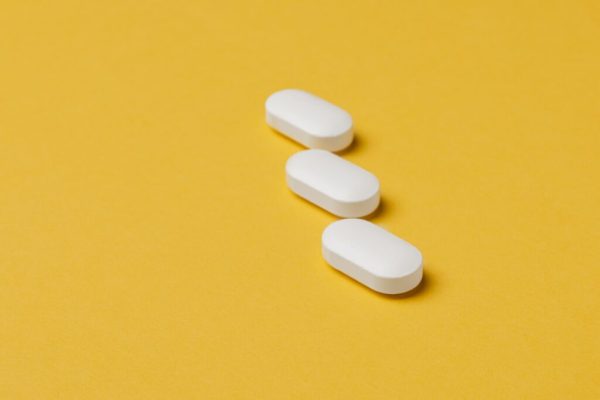Peppermint tea benefits the body, mind, and beauty in multiple ways. Free of caffeine, you can replace your regular tea with a cup of freshly brewed peppermint tea. At the same time, too much of it can contribute to heartburn. So, it is better to limit your consumption to two or at the most three cups daily.
The peppermint herb is local to Asia and Europe. Aromatic and a member of the mint family, it is a cross of spearmint and watermint. Naturally sweet, this great concoction contains zero calories which is good news for weight watchers.
People have utilized peppermint for medicinal and flavoring applications for many years. It is an ingredient in chewing gum, candies, toothpaste, and other products.
Table of Contents
Why Add Peppermint Tea to your Diet – 14 Benefits
Though not much study has been done on peppermint tea, researchers have studied certain oils and compounds present in peppermint leaves. These include limonene, menthone, and menthol.
If you prefer to buy peppermint tea rather than make it on your own, make sure it is prepared from actual peppermint over being just peppermint-flavored.
1. Bad Breath
Peppermint tea benefits oral health. As per the findings of a study, participants who received a rinse composed of peppermint, lemon and tea tree oils showed improved bad breath in comparison to the participants who did not receive the oils. The participants of the study were people who had gone through spine surgery.
Peppermint doesn’t just smell great but it is also antibacterial making it a good mouth cleanser. The mint can kill germs responsible for dental plaque. It is the active oil menthol that encourages fresh breath.
Drink peppermint tea to neutralize odors after consuming onions, garlic or other smelly foods.
2. Alleviates Menstrual Cramps
Peppermint could possibly help with menstrual cramps by virtue of its being a muscle relaxant. Menstrual pain results from the contraction of the vaginal muscles and uterus.
Research shows that peppermint oil could assist with decreasing the intensity of dysmenorrhea or menstrual cramping. The 2016 study explored how effective peppermint oil was in 127 young women who experienced dysmenorrhea. It found that peppermint oil capsules equaled mefenamic acid (non-steroidal anti-inflammatory medicine) ineffectiveness at soothing menstrual pain.
It follows from the above study that peppermint tea benefits menstrual women in terms of being a suitable home remedy for menstrual cramping.
3. Can Fight Insomnia
As it is caffeine-free and a muscle relaxant, peppermint tea makes for a great drink before bed. A study on mice found that peppermint oil increased their sleeping time when on a sedative. Peppermint tea may provide sound and restful sleep. It may be particularly helpful to you if you go to bed late. It is also good for insomniacs who long to sleep well.
4. Aids Digestion
Peppermint tea benefits the digestive process by making it smooth. As per a study carried out at the University of Exeter, peppermint tea shifts gas all through the body. Thus, it provides relief from cramping and bloating sensations.
Menthol present in the tea increases stomach bile which assists with the efficient digestion of foods. This brings down constipation and diarrhea symptoms and can promote the optimal working of the digestive system.
5. Resolves Stomach Trouble
As per research performed in 2017, taking peppermint oil capsules can assist with decreasing pain in children having a functional abdominal pain disorder.
Peppermint can soothe a tummy upset stemming from motion sickness, constipation or IBS. The mint speeds up the removal of the offending cause. Peppermint tea lessens feelings of fullness and decreases inflammation responsible for bloating.
Owing to the fact that menthol relaxes the digestive tract muscles, it is a wonderful remedy for IBS (Irritable Bowel Syndrome). An assessment of 9 studies done on 926 people with IBS found peppermint oil to provide better relief from symptoms than a placebo. This conclusion came from treatment conducted over a period of no less than two weeks.
Research also indicates that capsules with peppermint oil in them brought down the severity and incidence of nausea and vomiting in 200 people who were receiving chemotherapy treatment. Drinking peppermint tea while on a boat or just before entering a boat or plane can assist with curing seasickness and motion sickness.
6. Strengthens the Immune System
The antibacterial properties of peppermint assist with fending off harmful and disease-causing bacteria, and with strengthening immunity. This includes pneumonia-associated bacteria and Staphylococcus.
One study found that peppermint oil could kill and thwart the growth of certain food-borne bacteria. This includes E.coli, Salmonella, and Listeria in mango and pineapple juices.
Trace Vitamin B, potassium and a number of antioxidants enable easy absorption of nutrients. They also aid the healthy functioning of the body.
Antioxidants present in peppermint enable faster travel of white blood cells all through the body. As a result, the body is able to fight off bacteria and viruses faster.
7. Boosts Mental Clarity and Concentration
Peppermint tea benefits brain function. It does so by improving memory and increasing mental alertness. There is also an indication of it helping people to drive more safely. The calming effect of peppermint tea may decrease traffic-associated frustration. It may also alleviate anxiety in those taking a driving test.
Studies reveal that the aroma of menthol rouses the region of the hippocampus responsible for concentration and mental clarity. Drinking peppermint tea results in increased rejuvenation and more focus, both of which, will help to get through the day. Sipping hot tea slowly can maximize results.
8. Fights Sore throat and the Common Cold
Peppermint tea relaxes throat muscles that trigger an irritating cough. The muscle-relaxing property of peppermint assists with reducing congestion, opening up airways and relieving bronchitis and other severe colds.
9. Eases Nasal Blocks
Menthol combats sinus problems. It soothes inflamed mucous membranes of the throat and sinuses, thinning the mucus and functioning as a decongestant. Merely inhaling the steam coming out from peppermint tea can thin mucus and loosen phlegm.
10. Natural Remedy for Headaches
A study done on 41 people determined that the application of peppermint oil to the forehead could be as good a remedy for headaches as a 1000 mg dose of acetaminophen.
Sipping peppermint tea may help to relieve a headache without the need for unnecessary medication and unwanted side effects. The tea is frequently beneficial in curbing headaches triggered by a poor diet or stress. Such kind of headaches usually restricts the brain’s blood vessels. Peppermint tea removes the constriction thereby bringing much-needed relief.
Just smelling peppermint tea could help headaches and colds.
11. Reduces Stress
Peppermint tea is a great stress-buster. This benefit comes from menthol’s muscle-relaxing and anti-spasmodic nature. As a result, you feel relaxed in the midst of stressful situations.
12. Energy Booster
To combat morning drowsiness, try peppermint tea. Menthol enhances brain cell activity thereby triggering the release of dopamine. The tea can help elevate your productivity and mood.
A 2018 study with 24 participants showed that peppermint oil capsules improved cognitive performance and decreased mental fatigue better than a placebo.
13. May Be Effective Against Seasonal Allergies
Peppermint has rosmarinic acid, a compound associated with a decrease in allergy symptoms such as itchy eyes, runny nose, and asthma. The compound is usually present in rosemary as well as in plants belonging to the mint family.
A randomized study was performed in about 30 people with seasonal allergies for a period of 21 days. The study found that those participants who ingested an oral supplement with rosmarinic acid in it experienced fewer allergy symptoms when compared to those who received a placebo.
A study done in rats found that peppermint extract brought down such allergic symptoms as itchy nose and sneezing.
14. Reduces Fever
The menthol in peppermint is able to break a fever. Intake of hot mint tea brings on sweating which is how the body cools down naturally. Internally, menthol works to reduce the temperature.
Peppermint tea weight loss
Peppermint tea benefits those looking to lose weight but unable to control their hunger. As has been mentioned earlier, this tea is free of calories and is naturally sweet. So, there’s no need to add
calorie-increasing sugars. Replacing aerated drinks and sodas with peppermint tea is a healthier way to quench thirst.
A small study done in 13 people with no health complaints showed that the intake of a peppermint oil capsule caused a reduction of appetite. What follows from this study is that drinking peppermint tea may help you feel full for an extended time period.
Balance intake of peppermint tea with a regular exercise routine, consumption of the right food and adequate sleep.
Peppermint Tea Benefits Skin and Hair
There are lots of topical creams to get clear skin. However, drinking peppermint tea is one way to clean your skin from the inside.
1. Treats Acne and Oily Skin
The main cause of oily skin is an overproduction of sebum. Sebum is secreted by the sebaceous glands and is actually good for the skin if not secreted in excess. Peppermint tea can curb excessive oil production.
Acne is the result of either excessive sebum secretion or hormonal imbalance. Peppermint’s antiseptic properties could avert bacteria buildup that may clog pores. In addition to controlling sebum production, peppermint tea can help with achieving hormonal balance. What’s more, peppermint’s anti-inflammatory properties may help decrease acne-associated redness. So, piping hot peppermint tea is a great natural solution for acne and zits.
2. Reduces Itchiness, Scars, and Blemishes
Peppermint’s soothing and cooling effects are beneficial to treat burns, skin inflammation, itchy bug bites, and rashes. Itchiness and inflammation is the key cause of flaky and red skin. The tea contains huge amounts of antioxidants. They can help cure uncontrollable itchiness and reduced ability to keep skin infections at bay.
The antioxidants in peppermint tea may also help with getting rid of blemishes and spots, cure wrinkles, sunburns, and premature aging. Regularly consume the tea for maximum benefit.
3. For hair growth and dandruff reduction
Peppermint tea stimulates blood flow so it may help with hair growth. It can also balance oil production. In addition, peppermint tea benefits those looking to get rid of dandruff. Rinsing with the tea could minimize the problem.
Here’s how to do a peppermint hair rinse. Prepare peppermint tea as usual and set it aside. First do the usual hair washing with shampoo. After that, use your hands to massage the peppermint tea into your hair. Make sure the tea is not hot before use. Allow the tea to remain on your hair for about thirty minutes. Apply conditioner. Wash off everything.
How to Make Your Own Cup of Peppermint Tea
To make a fresh cup of peppermint tea at home, all you need is hot water and some peppermint leaves. First, boil 2 cups of water. Once the water has boiled, switch off the flame. Take 4 or 5 peppermint leaves, tear them and add to the water. Close the pot and allow the leaves to steep for approximately 5 minutes or as per your taste. The longer the steeping period, the stronger will be the flavor. Once the time is up, simply strain the tea into your mug.
Peppermint Tea Side Effects
Peppermint tea is mostly safe. However, it is best avoided in two situations:
- If pregnant or breastfeeding– Too much intake of peppermint tea may lead to uterine relaxation that could cause a miscarriage. Nursing women should also not drink peppermint tea. This is because there is an indication that peppermint oils could trigger breathing difficulty in children and infants.
- You have GERD (Gastroesophageal reflux disease) – The relaxation properties of peppermint tea though beneficial no doubt could pose a problem if you have GERD. It may trigger further relaxation of the esophagus and the stomachs sphincter muscles, aggravating acid reflux.
Drug interactions – Peppermint tea may interact with certain medications such as those for diabetes and blood pressure. It may also interact with drugs used to treat acid reflux and heartburn. Seek your doctor’s advice if you plan to use peppermint tea when you are on such kind of medication. Also consult him if you intend to use it to treat any ailment.
To conclude, the many peppermint tea benefits offer an inexpensive way to take charge of your health, from giving you a healthy gut and a relaxed mind to improving your immunity, skin and hair.











